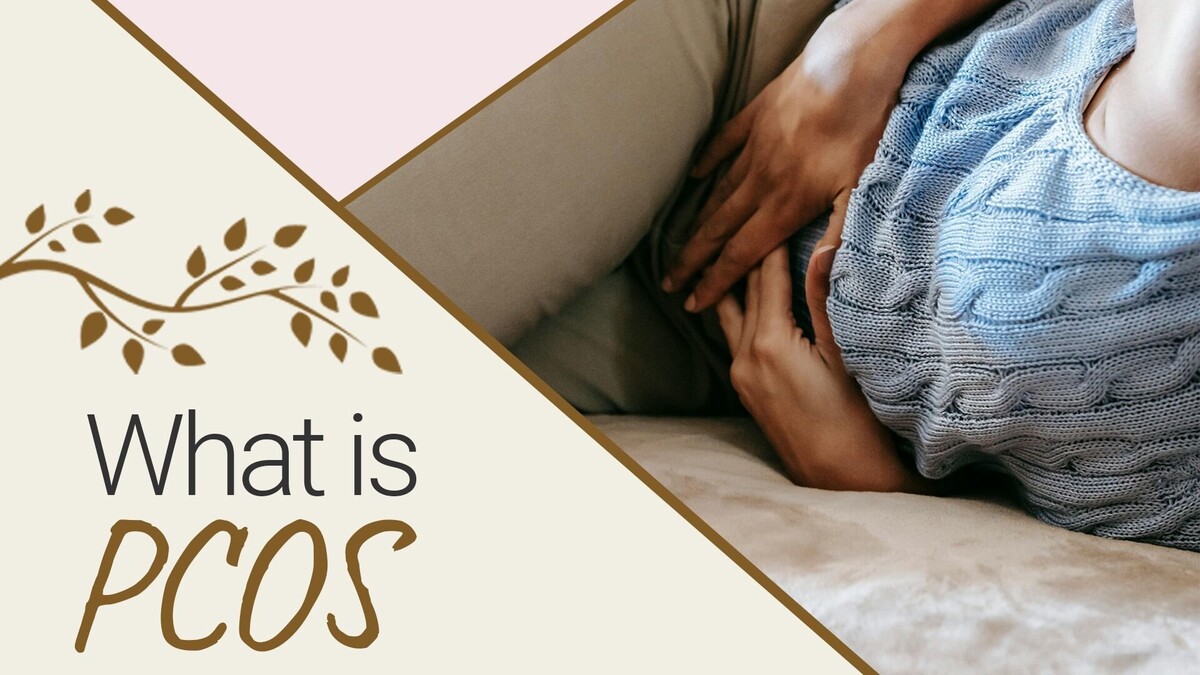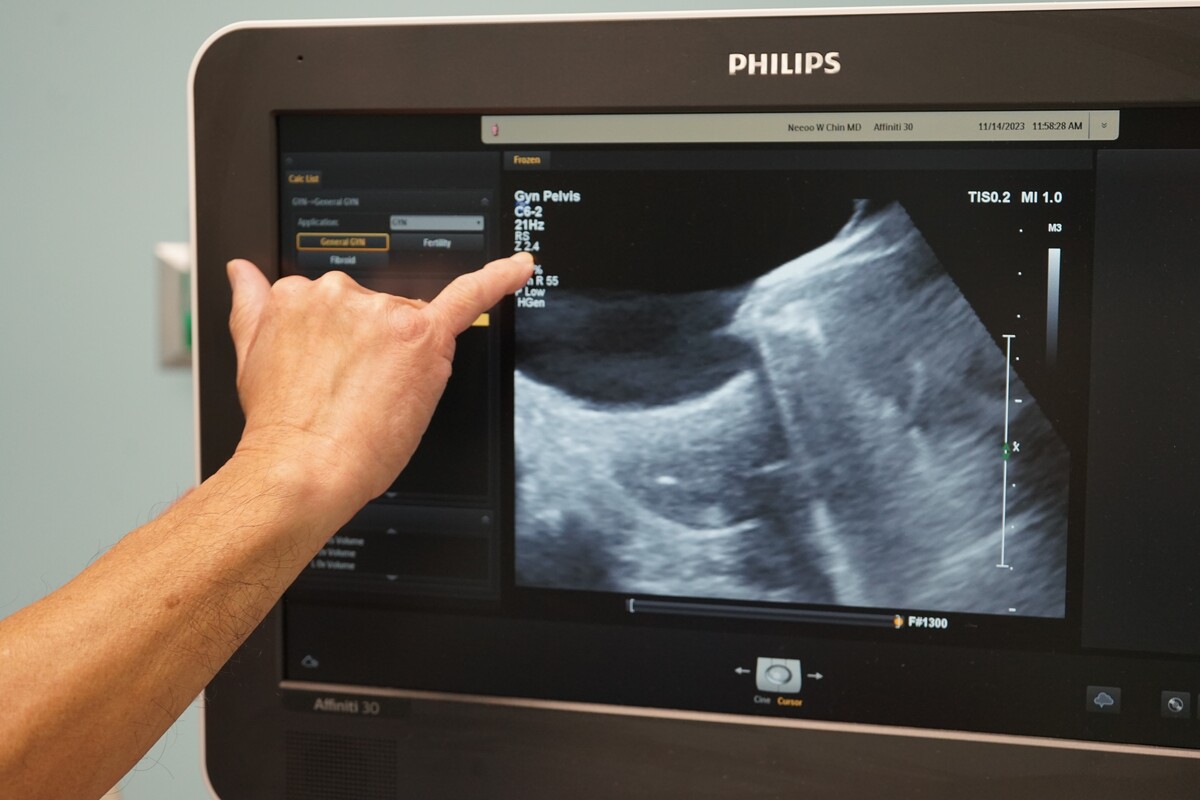What is PCOS?

Polycystic Ovarian Syndrome (PCOS) is a common gynecological issue that affects between 7% -13% of women worldwide. This causes women to have infrequent or irregular periods as a result of the body producing too much of the hormone androgen. As a result, multiple small sacs or cysts of fluid develop on the ovaries and the woman's body may not regularly release eggs.
It is important to note that some women with this disorder do not develop cysts, yet still deal with the condition's other symptoms. In some cases, PCOS prevents women from producing enough of the hormones necessary to ovulate. When this happens, it can make the chances of unassisted pregnancy very low.
Fortunately, there are treatments available for PCOS, including the use of medication. Fertility treatments like in vitro fertilization (IVF) can also be used to assist pregnancy. There is no cure for PCOS, but with proper treatment, it is possible to reduce and manage symptoms to prevent resulting health issues.
In this post, we will discuss PCOS and what it means for your fertility treatment. We will first discuss the symptoms of PCOS and then we will dive deeper into treatment plans. Keep reading to learn more!

What You Need to Know About Polycystic Ovarian Syndrome
Polycystic Ovarian Syndrome (PCOS) is a hormonal disorder that affects many women of reproductive age. While the exact cause of PCOS is unknown, researchers believe it may be related to a combination of genetic and environmental factors. PCOS can have significant implications for a woman's reproductive health, with many women experiencing difficulties conceiving or managing their menstrual cycles.
Let's begin by looking at some of the symptoms of PCOS in more detail to help you understand more about how this condition affects women.
Symptoms of PCOS
PCOS, or Polycystic Ovary Syndrome, is characterized by a range of symptoms, including irregular menstrual cycles, excessive facial and bodily hair growth, acne, thinning of hair, and weight gain due to insulin resistance.
Irregular Menstrual Cycles
One of the most prominent symptoms of PCOS is irregular menstrual cycles. Women with PCOS often experience fewer than eight periods per year or may sometimes go months without a period. This is due to hormonal imbalances that disrupt the normal ovulation process.
Excessive Hair Growth
Another symptom of PCOS is excessive hair growth, known as hirsutism. Women with PCOS may notice increased hair growth on their face, chest, back, or abdomen. This is caused by elevated levels of male hormones, such as testosterone, which are typically found in higher amounts in women with PCOS.
Persistent Acne
Acne is another common symptom of PCOS. Hormonal imbalances can lead to increased oil production in the skin, resulting in frequent breakouts and blemishes.
Hair Loss
Thinning of hair, or alopecia, is also seen in women with PCOS. This is usually characterized by overall hair thinning or the development of a receding hairline.
Weight Gain
Weight gain is a common symptom of PCOS, often caused by insulin resistance. Insulin is a hormone that helps regulate blood sugar levels. In PCOS, cells become resistant to insulin, leading to higher insulin levels. This can promote weight gain, particularly in the abdominal area.
Case study: Learn more about PCOS and its effect on fertility!

Treatment of PCOS
While there is no cure for PCOS, there are several treatment options available to manage its symptoms and improve overall health. These courses of treatment can be very effective, and, in some cases, they are as simple as taking regular medication.
Birth Control Pills
One common treatment option for PCOS is hormonal birth control. This can help regulate the menstrual cycle and reduce symptoms such as acne and excess hair growth. Progestin therapy is another option, which involves taking progestin hormone in various forms to regulate periods and reduce the risk of endometrial cancer.
Insulin-Sensitizing Medications
Insulin-sensitizing medications, such as metformin, are often used in PCOS treatment. These medications help improve insulin resistance, which is a common issue among women with PCOS. By improving insulin sensitivity, these medications can help regulate menstrual cycles and decrease symptoms.
Androgen Blockers
Androgen blockers, like spironolactone, can be used to reduce excessive hair growth and acne associated with PCOS. These medications work by blocking the effects of androgens, hormones that can contribute to these symptoms.
Lifestyle Changes
In addition to medication, weight reduction, and lifestyle improvements play a vital role in managing PCOS symptoms. Losing excess weight can help improve insulin resistance, regulate menstrual cycles, and decrease androgen levels. A healthy diet, regular exercise, and stress management techniques are essential for the overall management of PCOS.
Consulting With Your Fertility Specialist
When it comes to fertility, a fertility specialist may recommend various treatments for PCOS. These may include medications to induce ovulation, such as clomiphene citrate, or assisted reproductive technologies like in vitro fertilization (IVF). The specific treatment plan will depend on individual circumstances and the desired outcome.
Learn more about how to prepare for in-vitro fertilization. Read the full blog post here!
Managing PCOS at the Fertility Wellness Institute of Ohio
PCOS can be a challenging condition, especially if you and your partner are trying to get pregnant. Besides causing irregular periods, hair gain or loss, and other symptoms like acne, PCOS can cause your body to stop releasing eggs for ovulation. If this occurs, and your PCOS is resistant to treatment, then the best way to get pregnant is through means such as IVF.
Deciding to pursue IVF treatment for PCOS is a big decision. You need a team of fertility experts who will guide you through every step of the process to ensure that you are heard, seen, and understood from the first appointment to your last.
At the Fertility Wellness Institute of Ohio, we are here for you. Led by Dr. NeeOo Chin, a Board-Certified Reproductive Endocrinologist, our staff of fertility experts will walk you through your options to help you meet your family goals.
Learn more about your fertility options. Schedule an appointment with Dr. Chin today!
Follow the Fertility Wellness Institute of Ohio on Facebook, Instagram, X, and LinkedIn!

